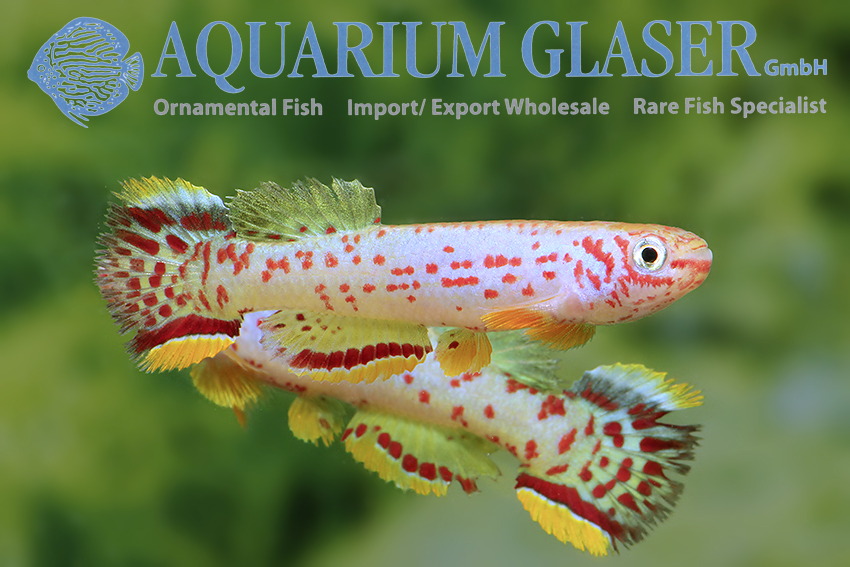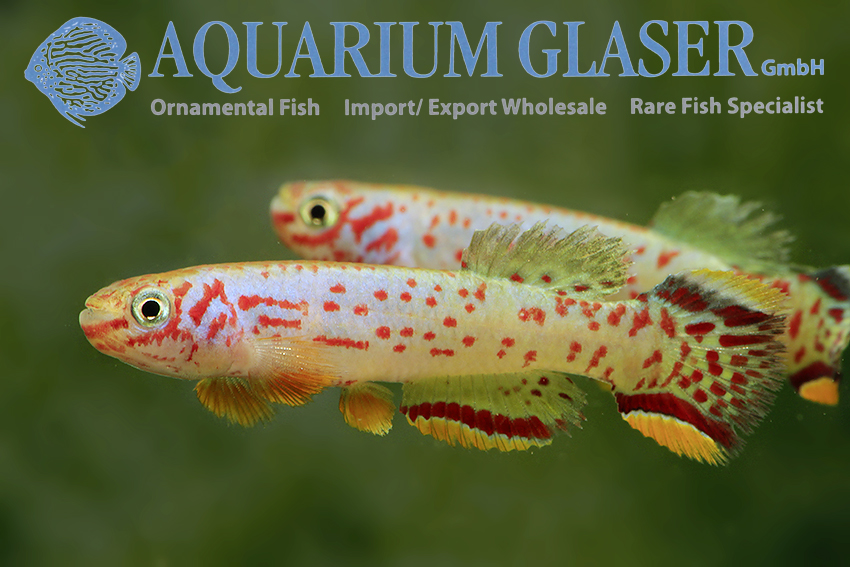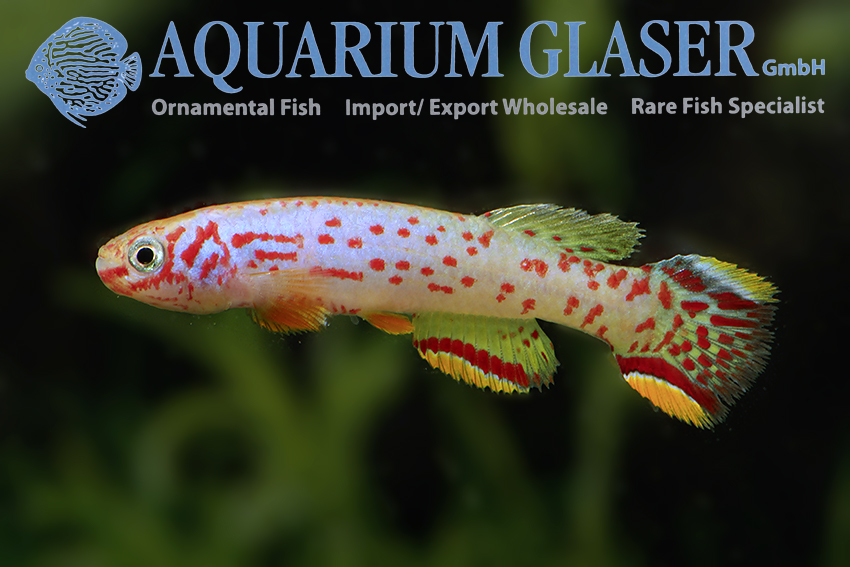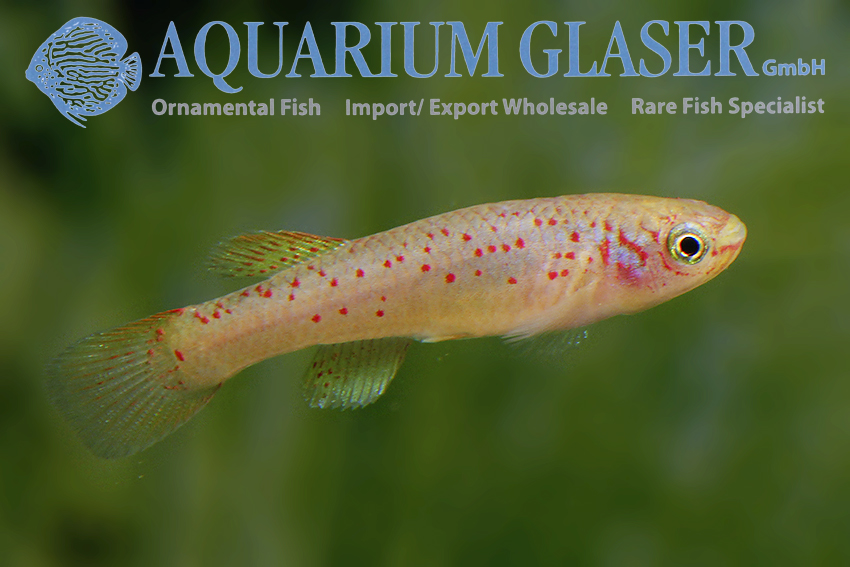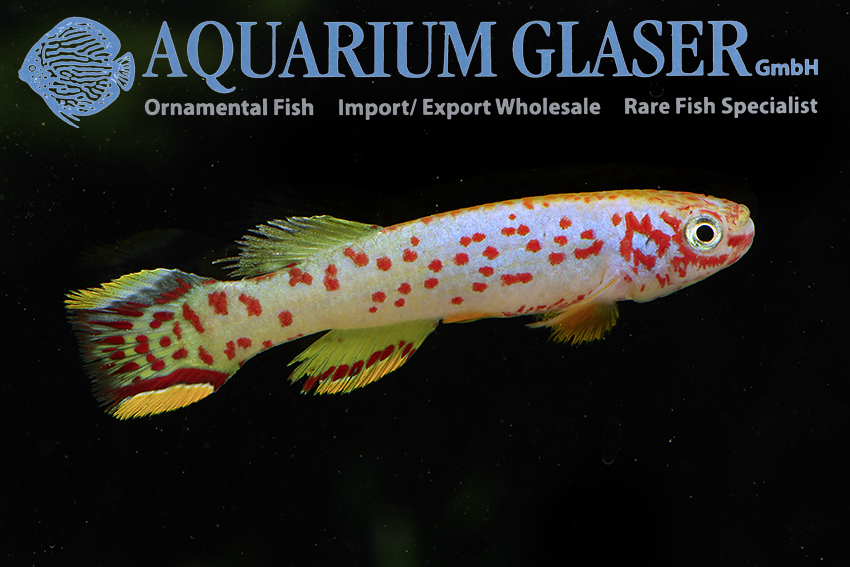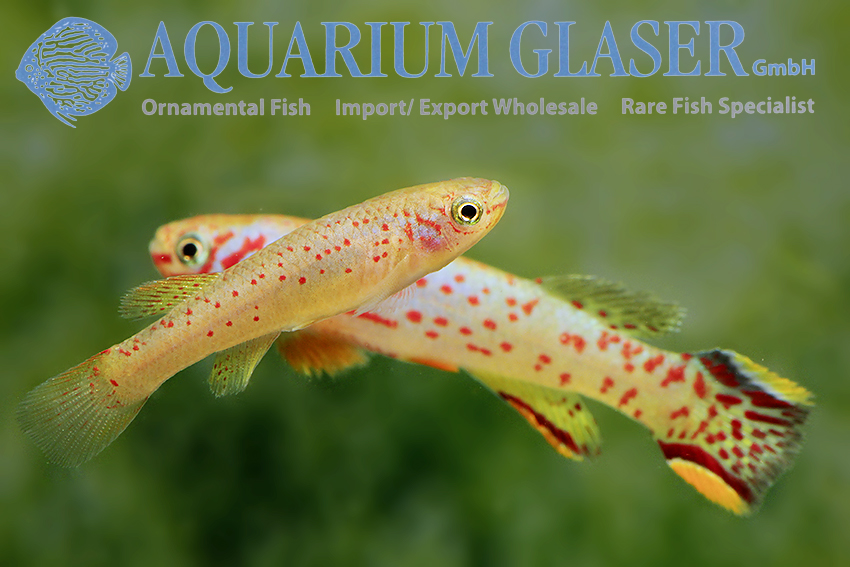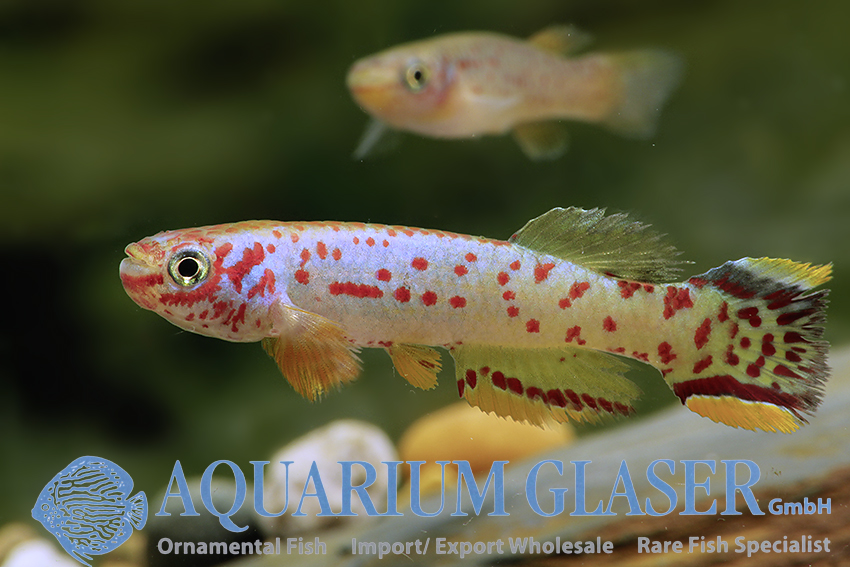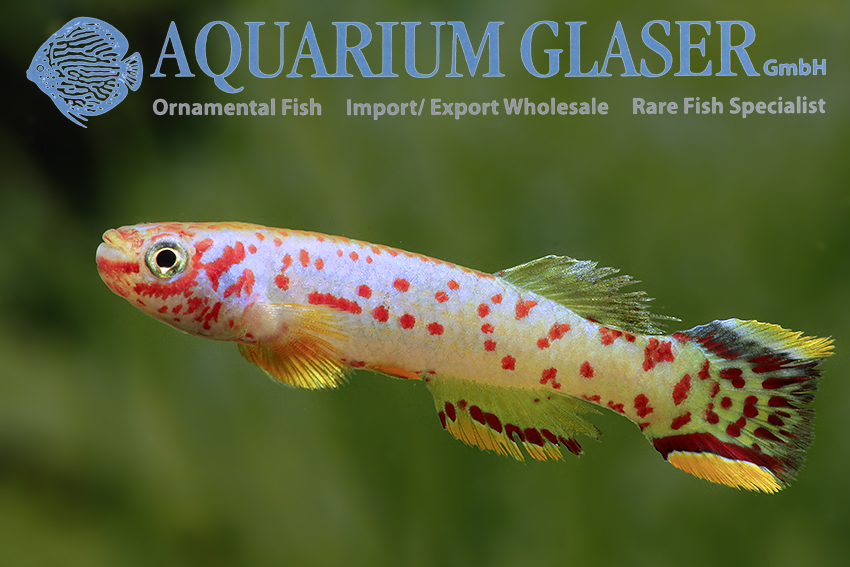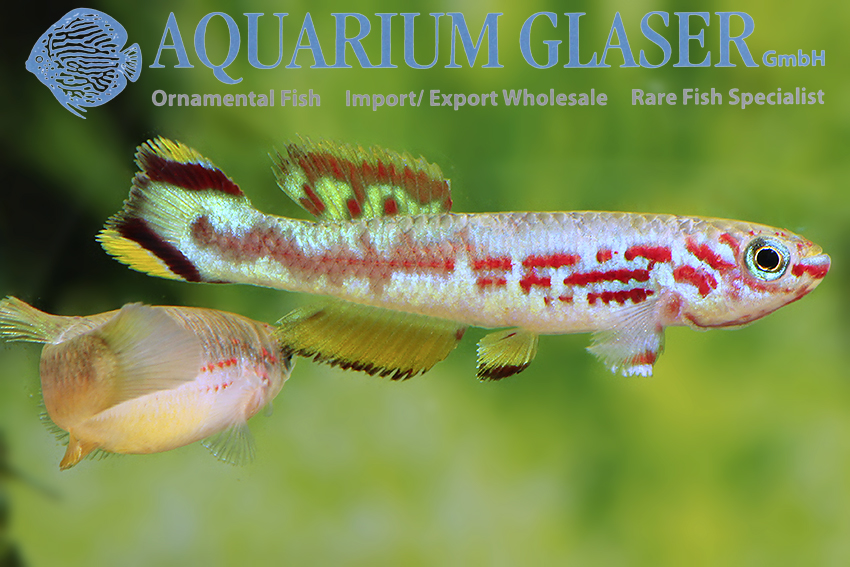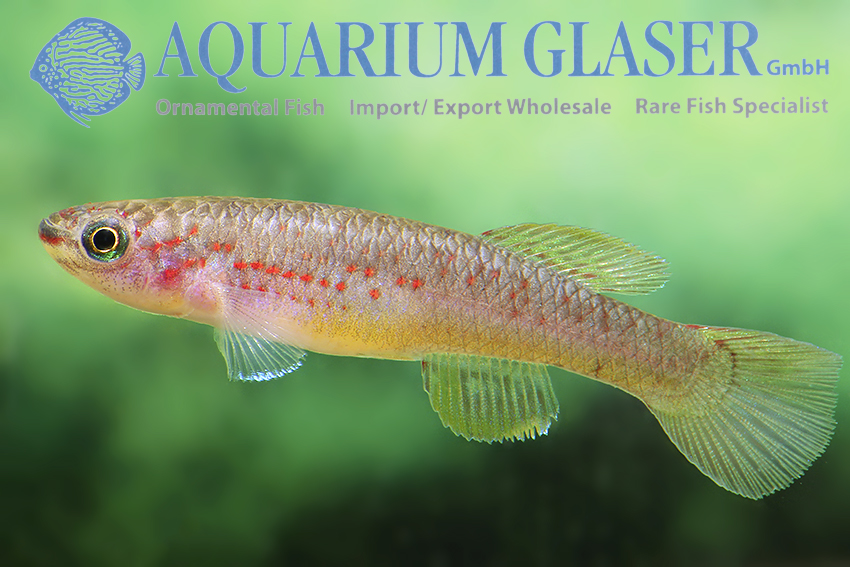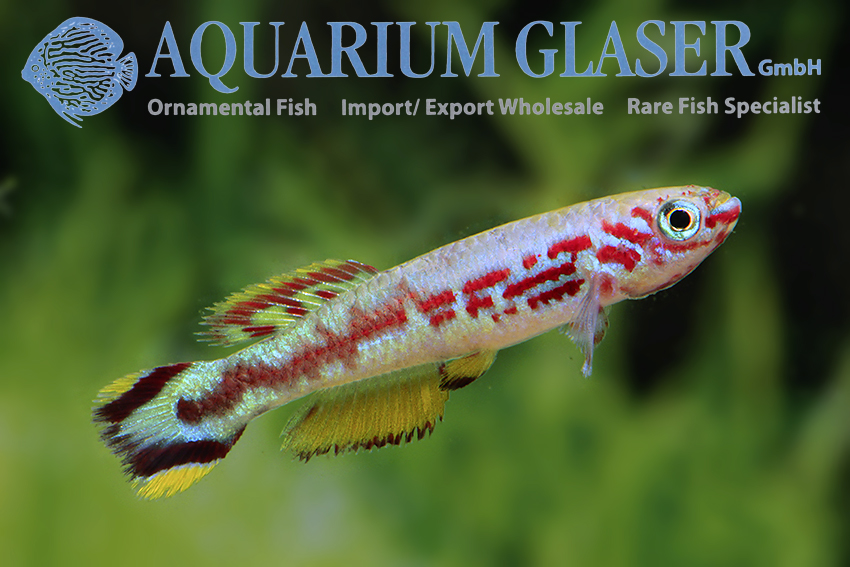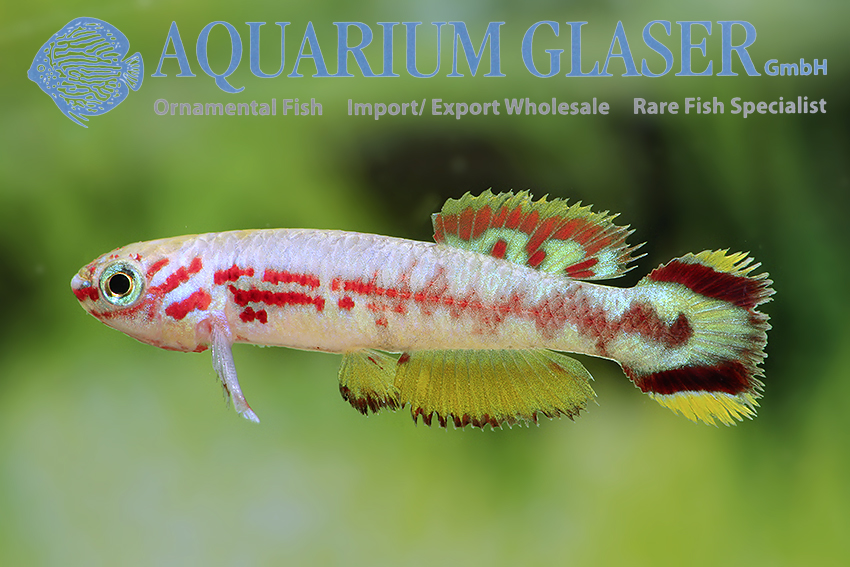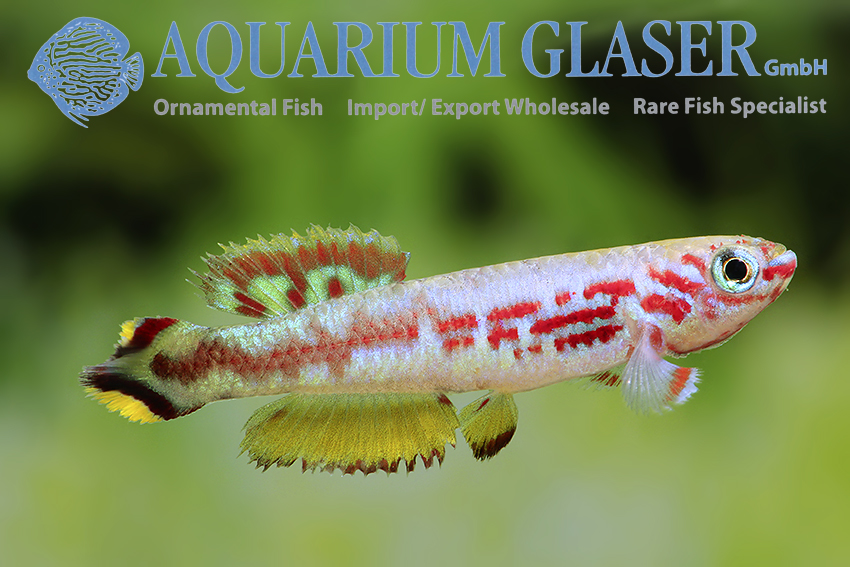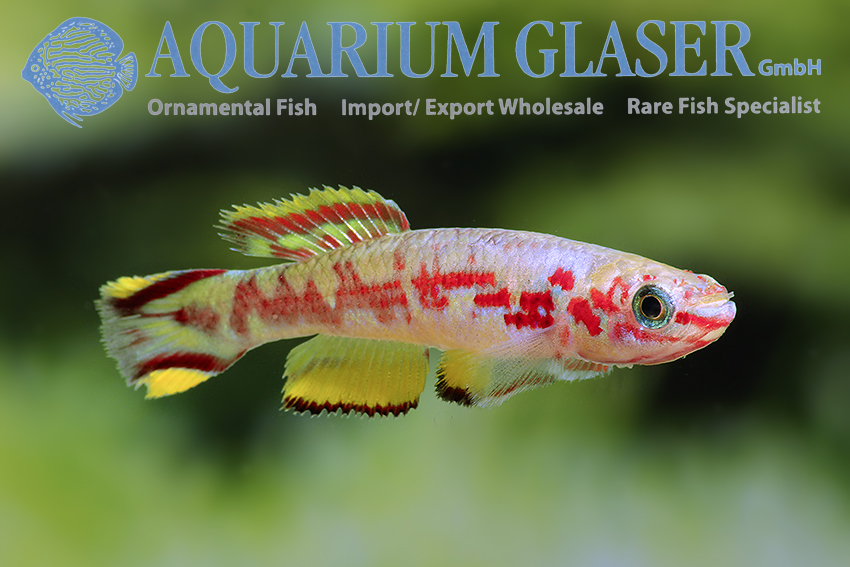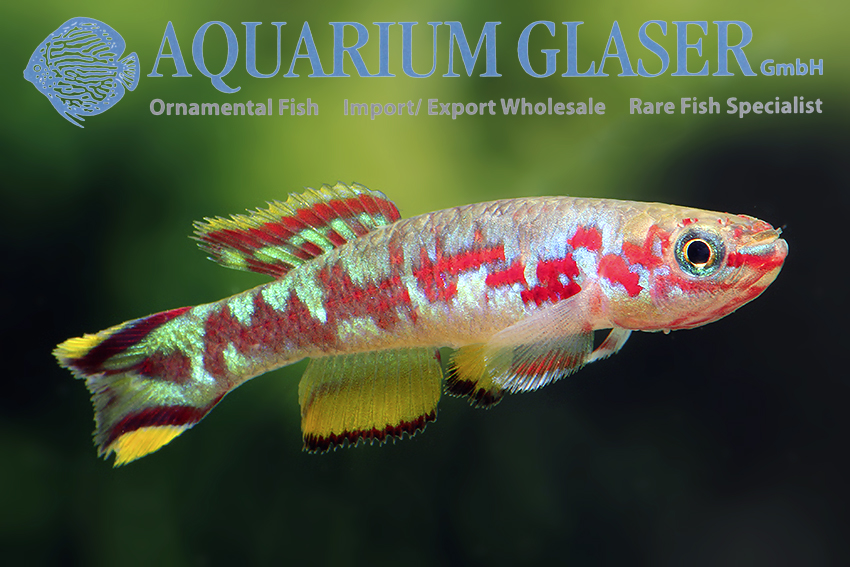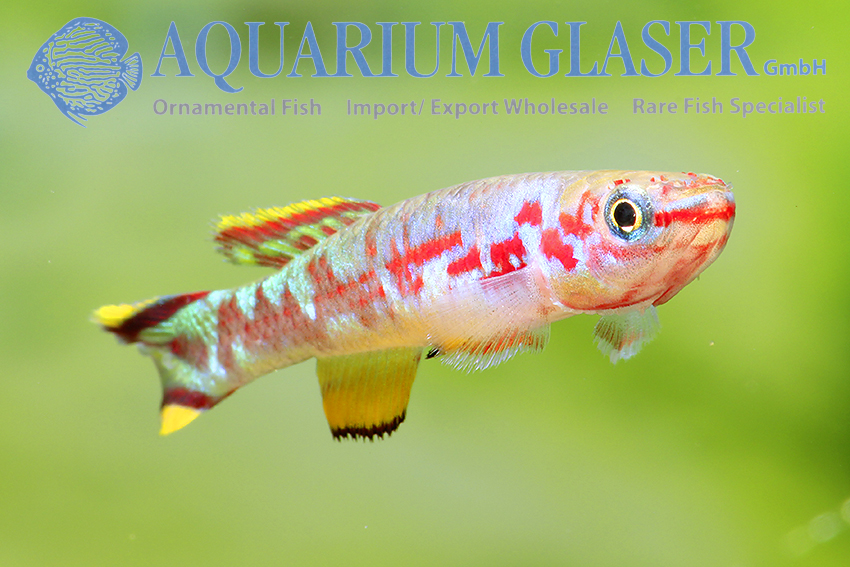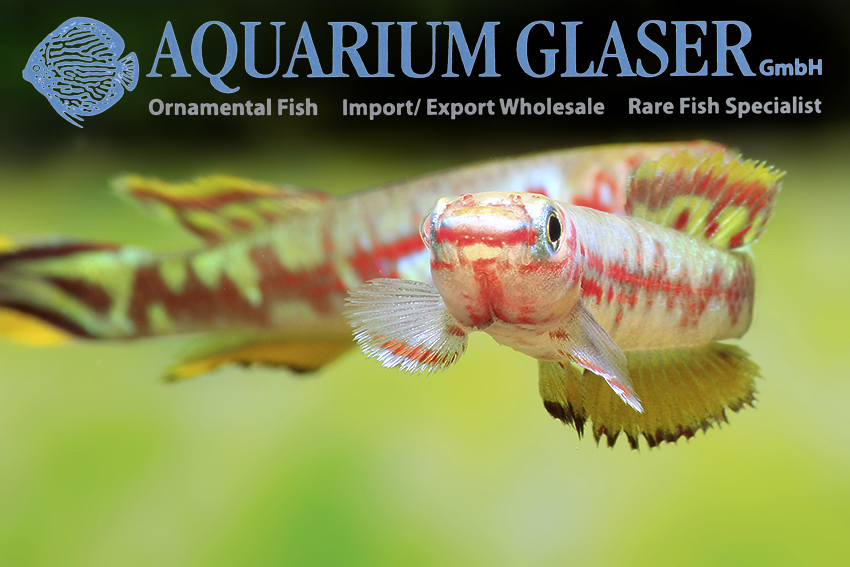Within the genus Fundulopanchax, which was established already in 1924, but then was seen as a synonym to Aphyosemion for a very long time, there are very large species, like F. sjostedti, which can reach 12 cm (see https://www.aquariumglaser.de/en/fish-archives/fundulopanchax_sjostedti_usa_blue_en/), but also many small species, which do not grow longer than 6 cm. Among the latter is Fundulopanchax scheeli. This small beauty was described in 1970 from aquarium specimens of unknown origin. Only much later it was found out that F. scheeli has only a small distribution area at the lower Cross River in southeastern Nigeria.
This killi is relatively popular because of its good breedability and beauty. It can be recommended, similar to the “Cape Lopez” even with restrictions for community aquariums. However, the company in such a case must be selected very carefully. In a colorful “teeming tank” or with aggressive fishes F. scheeli must not be housed under any circumstances. They need calm, densely planted aquariums with soft, dark substrate (peat fibers) to feel safe. In such an aquarium you will have a lot of fun with the animals.
For our customers: the animals have code 313702 on our stock list. Please note that we supply only wholesale.
Text & photos: Frank Schäfer





